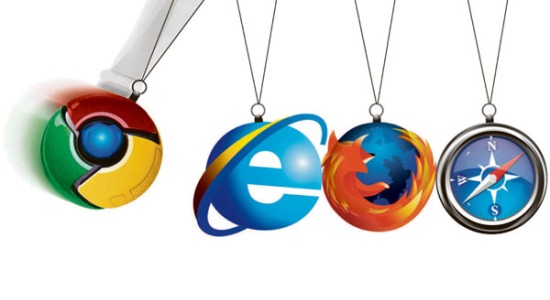Panel – Voices From The HTML5 Trenches: Browser Wars IV

Summary:
The term HTML5 now refers to the much-hyped kitchen sink of the web. It covers *everything* including things not officially part of the HTML5 specification. Yet “HTML5” is now the catch phrase to describe the new wave of platform competition on the web, and browser vendors vie to outdo each other on benchmark tests touting compliance and performance. Every major browser vendor — Apple, Opera, IE, Chrome, and Firefox — will have a significant browser release by SxSW 2011. Microsoft’s recent IE9 press event suggests that they are “all in for HTML5.” So if all of us browser vendors are “all in” for HTML5, what does this mean for web developers? And what’s up with the dirty marketing buzz around tests and demo pages? This panel will expose the areas where we browser vendors cooperate as well as compete, and will push on the painful spots where we seem to disagree. We’ll bring every major browser vendor to the table, and talk about open video on the web (and video codecs), what this all means to Flash, APIs (including contentious ones, like databases), CSS (including once hot areas like fonts) graphics, SVG vs. Canvas, WebGL, Device APIs, and security. This browser wars panel will be less like Inside Baseball, and more about the practical issues confronting web developers today. We’ll poke at the raw spots that browser vendors need to discuss. As always, audience participation will account for a substantial chunk of time.
Presenters:
- Alex Russell, Software Engineer, Google
- Arun Ranganathan, Standards Evangelist
- Brendan Eich, CTO, Mozilla
- John Hrvatin, Sr Program Mgr Lead, Microsoft
- Lars Erik Bolstad, VP Core Tech, Opera Software
Notes:
- How does MSFT feel about ChromeFrame
- (Hrvatin dodged the question at first)
- Devalues the value of integrating the UI with browser capabilities. Makes security an issue, and tracking protection
- Russel – Privacy frame is weak, because chromeframe uses the chrome privacy APIs. So, it’s not worth nothing that by using the IE renderer in IE, you get the security benefits. You still get the security benefits with ChromeFrame
- Wired thinks that the web is dead, and that now it’s the world of apps. Some of the apps are built with web-like veneers. What is your take on the app vs web dichotomoy? What is it about the web that should win?
- Eich – Well, i thought the web was dead, first of all. Apps are still be worth investigating, but web apps are where it’s at. They should run in your browser with enhanced security rights, and also be able to be trafficed in multiple stores.
- Bolstad – I like apps, I think it’s a convenient way to get the info you need. It would have been cool if some of the web apps projects had been based on existing standards, instead of creating a new app/widget model, which is what has happened with Opera.
- Eich – Manifest formats – dime a dozen. We are not yet setting up a mozilla app store. We want there to be multiple stores, with partners, and that treats developers well.
- Russel – The chrome app store is really selling mobile apps with a small metadata wrapper. The differences between an app vs web app are becoming increasingly blurred.
- Hrvatin – One of the things that’s nice about the web is deep linking. With a lot of the affordances we’re pushing forward here with web apps is keeping the affordance of deep linking, and other familiar, useful features.
- Eich – If you have apps, they should not be separated by operating systems – apps should be able to run everywhere. That’s why web apps are important.
- What’s the promise of HTML5 Video? What’s the best codec? Flash? Silverlight?
- Eich – Our approach to IE9 and HTML5 is we just want it to work. We’ll use whatever works best. No ideological debate. We want you to play videos w/o plugin, and just want it to work
- Bolstad – We want a more open web video standard. H.264 is not royalty free, which sucks. Opera has added support to other, open formats.
- Shouldn’t we have one standard unified video format?
- Hrvatin – Avoided question. “I’m not a lawyer”
- Russel – We want WebM, so it’s free for not only people who are decoding, but also who are encoding (content creators)
- Where is the market for HTML5 Video Right Now?
- Russel – Flash decision is very much question of how can we keep our browsers safe. We’re laying the groundwork for the web video world to exist, without h.264
